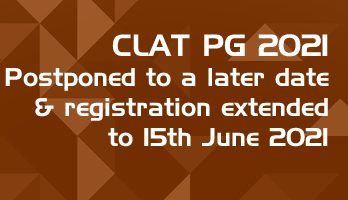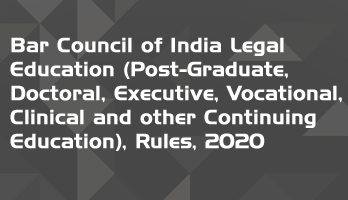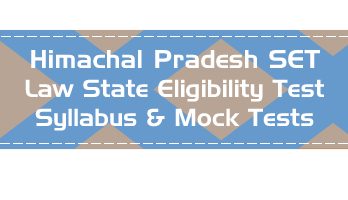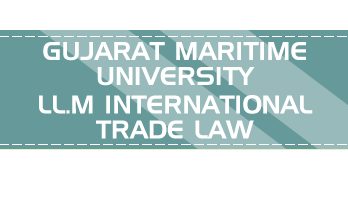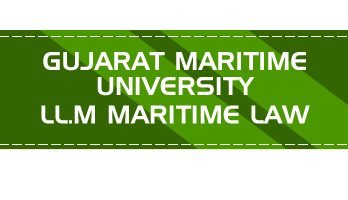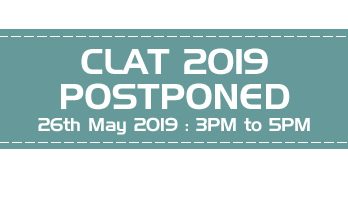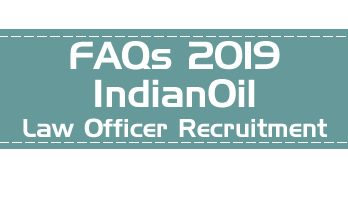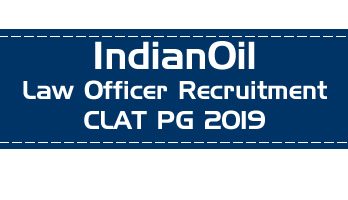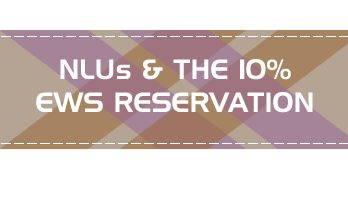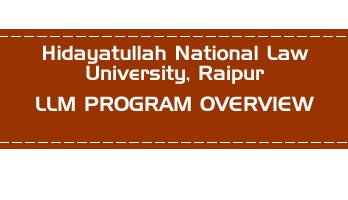Q : Is other state students eligible to apply for TS SET (Telangana State Eligibility Test)?
Ans :
Yes.
If you go through the official notification, though there is a brief mention of ‘Telangana Students’, there is no specific bar on any person from taking the exam.
The SET exam is an ‘eligibility test’ which only declares that a person is eligible for an Assistant Professor role; and it does not guarantee anything more.
Which is also the reason why the notification clearly states that Candidates are not required to send any certificates/documents in support of their eligibility.
The actual eligibility criteria will come to play when the candidate applies for a Asst. Professor role in a Telangana educational institution; at which time, the rules and criteria of the College will be applicable. The TS SET will just be another essential attribute for selection.
Adding on to the above; a candidate may even take the exam in a totally unrelated field; simply because there is no documentation / eligibility check; For example, if I were to take the exam in say ‘History’, though my PG degree is in a different field; clearing the TS SET would not help in any practical way since colleges will lay down the rule at the time of recruitment.
So, yes, any candidate can take up the TS SET exam and even get qualified.
If you are interested in TS SET Law, check out more information on TS SET Law , including the official notification, important dates, syllabus, previous question papers, online mock tests and exam center details etc. at this link :
Q : What is meant by TSSET?
Ans :
Telangana State – State Eligibility Test – That is the full-form of TS SET.
Originally, the UGC NET was conceived as the common exam to determine eligibility for JRF and for Assistant Professor roles across India.
The idea was that since there are various Masters (PG) level courses in each field, with different focus areas, different syllabus etc., the UGC NET would act as an ‘Equalizer’ and help in screening all applicants intending to get into the academic field as a Researcher or as an Assistant Professor.
However, the UGC NET is conducted in English and Hindi, whereas there is a requirement for Teachers / Researchers who are conversant with the subjects in a local language too. So individual States were allowed to conduct their own SETs, which would be conducted in English and also the State Language.
States like Karnataka, Maharashtra, Andhra Pradesh, Tamil Nadu, MP etc. conduct their own SETs. The North Eastern states have a combined SLET (State Level Entrance Test)
After the creation of Telangana State, the erstwhile APSET was also bifurcated and the TS SET was created.
SETs are used for deciding eligibility for Assistant Professor roles at a State level and not for JRFs.
Also, a candidate clearing a State Level SET is eligible for suitable roles within that State and not in other states; whereas the UGC NET makes a person eligible for roles across India.
You can check out more information on TS SET Law , including the official notification, important dates, syllabus, previous question papers, online mock tests and exam center details etc. at this link :
Q : How do I prepare according to the new pattern of the UGC NET Law ?
Ans :
Copy-pasted and edited from one of my previous answers . . . long answer ahead : )
The UGC CBSE NET exam has been evolving over the past few years. Earlier, there were three papers; of which Paper III was an essay type paper.
In 2012, the Paper III was made into an objective type paper; so you can say that from 2012, UGC CBSE NET became a completely ‘objective’ type exam.
Now, having two law papers II & III as objective was somewhat redundant, since there was an overlap in what was covered in each paper.
From , there are only two papers; the general Paper I – common for all applicants; and the new Paper II – which is specific to the candidate’s chosen subject.
The length of new Paper II is now extended to 100 questions – up from the previous 50 Questions.
However, you can say that the overall length of the exam has gone down since now earlier Paper II had 50 Qs and Paper III had 75 Qs = Total 125 Qs.
The exam however still remains a tough-nut-to-crack; especially since the ‘pass %’ is now around 6% officially.
Syllabus :
Coming to the syllabus for the UGC NET Law exam, the overall syllabus has been published by the UGC. But there is no allocation of marks – like 20% from Constitutional law, 20% from … etc.
The core syllabus that will be covered in the UGC NET Law paper II is based on the standard 3 year LLB syllabus that is followed across all the UGC-BCI recognized Law colleges in India.
However, there may be a few changes since some of the optional / elective LLB subjects are either included compulsorily or excluded totally.
*Note : A five year LLB will have BA / BBA / BCom or other degree subjects in the initial semesters, there are to be ignored for UGC NET Law.
The core syllabus includes :
- Constitutional Law
- Administrative Law
- Legal Theory – Jurisprudence
- Public International Law
- Family Law
- Law of Contracts
- Law of Torts
- Law of Crimes
- Labour Law
- Environmental Law
- Human Rights
- Business law, Commercial Law & Company Law
You can read about the complete UGC NET Law syllabus and analysis here.
Q : Do we have to take experience certificate from all our employers to apply for LLM?
Ans :
Nope . . .
You do not need any experience letters from your previous employers for applying for any LLM in India.
It might be applicable in some foreign countries where the admissions process takes into consideration your academics + your experience + standardized test scores etc.
In India there are three ways to taking up an LLM course . . .
[1] Without any entrance exam – There are many tier-3 and some tier-2 Law Colleges across India, where admission is done on a first-come-first-admitted basis.
No entrance exam. Just meet the minimum criteria in terms of your previous academics and pay the fees. The basic eligibility will be 50% in your LLB. (45% for reserved categories)
Some even have a Distance education LLM programs.
[2] With entrance exam – there are tier 2 & tier 1 colleges that have their own entrance exam and in some states there is a common entrance exam for Law Courses across many participating colleges – tier 2 & 3.
For example, the Andhra Pradesh – AP PGLCET, Telangana – TS PGLCET, Kerala CEE , DU LLM entrance exam etc.
Bulk of the seats are filled through the exams, but there will usually be a ‘Management quota’ of seats with higher fees in private colleges that participate in these common entrance process.
Basic eligibility here is usually LLB with at least 50% or 55% (depending on the institute rules), with some relaxation for reserved categories.
[3] Through CLAT – CLAT is the common entrance exam for the National Law Schools / National Law Universities across India.
Basic eligibility is 55% in LLB (50% for reserved categories.)
Note : NLU Delhi and HPNLU Shimla do not participate in the CLAT as they have their own separate exam, eligibility is similar to CLAT.
Q : How can one go for an LLM after doing an LLB?
Ans :
Copy pasted from one of my previous answers . . .
There are three ways to taking up an LLM course :
[1] Without any entrance exam – There are many tier-3 and some tier-2 Law Colleges across India, where admission is done on a first-come-first-admitted basis.
No entrance exam. Just meet the minimum criteria in terms of your previous academics and pay the fees. The basic eligibility will be 50% in your LLB. (45% for reserved categories)
Some even have a Distance education LLM programs.
[2] With entrance exam – there are tier 2 & tier 1 colleges that have their own entrance exam and in some states there is a common entrance exam for Law Courses across many participating colleges – tier 2 & 3.
For example, the Andhra Pradesh – AP PGLCET, Telangana – TS PGLCET, Kerala CEE , DU LLM entrance exam etc.
Bulk of the seats are filled through the exams, but there will usually be a ‘Management quota’ of seats with higher fees in private colleges that participate in these common entrance process.
Basic eligibility here is usually LLB with at least 50% or 55% (depending on the institute rules), with some relaxation for reserved categories.
[3] Through CLAT – CLAT is the common entrance exam for the National Law Schools / National Law Universities across India.
Basic eligibility is 55% in LLB (50% for reserved categories.)
Note : NLU Delhi and HPNLU Shimla do not participate in the CLAT as they have their own separate exam, eligibility is similar to CLAT.
Q : What are the examination centers of the DU entrance exam for PG courses?
Ans :
The DU PG Courses entrance exams will be held in 19 centers across the following 18 centers. (I believe there will be at least two centers in Delhi – NCR)
1. Ahmedabad
2. Bangalore
3. Bhopal
4. Bhubaneshwar
5. Chandigarh
6. Chennai
7. Delhi (NCR)
8. Guwahati
9. Hyderabad
10. Jaipur
11. Jammu
12. Kolkata
13. Mumbai
14. Nagpur
15. Patna
16. Ranchi
17. Trivandrum
18. Varanasi
The exact address of the center will be communicated at the time when the hall-ticket is issued; or at the latest – prior to the exam.
Depending on the number of applicants opting for a particular location, the DU authorities may make changes to the list, so keep checking the official DU admissions website for the latest notifications.
Check out the official admissions brochure for complete details of all DU PG course admissions :
Q : What is the syllabus of the DU LLM?
Ans :
I believe you are referring to the DU LLM entrance exam syllabus ?
The overall syllabus for the entrance exam will be based on the subjects covered in the standard LLB course across India. However, there is a higher degree of emphasis on Constitutional Law & Jurisprudence.
The Test Paper will consist of one question paper containing 100 questions. (The DU LLM Entrance had only 100 questions, previous years had 175 questions)
Questions will be objective-type, with multiple choice answers drawn from various areas of the LLB syllabus, including the following areas:
-\tConstitutional Law of India
-\tJurisprudence
-\tLaw of Contracts
-\tSale of goods Act
-\tLaw of Torts
-\tConsumer Protection Act
-\tFamily Law (Hindu law & Muslim law)
-\tPublic International Law
-\tCriminal Law
-\tCompany law and Partnership
-\tIntellectual Property Rights
-\tCyber Law
-\tEnvironmental Law
In addition a few questions may address contemporary legal issues
Refer to this article for the detailed syllabus for the upcoming DU LLM admissions / entrance exam & other relevant details :
Q : When do I get my NET DEC certificate for the UGC-JRF?
Ans :
Check this website ?
Q : In which way can we retrieve the past leave records of the district judges in India? Will an RTI to the Bar Council of India be helpful in that case?
Ans :
The Bar Council of India (BCI) does not have anything to do with maintaining the leave records of the Judges in India and an RTI application to the BCI will not help in any way.
BCI is the umbrella organization which regulates the Legal Profession (Lawyers / Advocates) and Legal Education etc. But Judges (though they start off as Advocates) come under the Judicial Services and the BCI does not have any administrative or procedural oversight on the Judicial Services.
Even if you file an RTI with the correct authorities in the Judicial Services of your state, I believe that the personnel (& personal) records of Government Employees are confidential and may not be sent out in response to RTI queries.
Also, the leave records of Government Departments are subject to the record retention rules of the GOI and I vaguely remember that they come under C-3 category, which means that the records are maintained only for three years and may be destroyed after that.
Thanks for the A2A.
Q : When will the TS SET final answer be available?
Ans :
The TS SET – Telangana State Eligibility Test final answers were published on the official website for some time; however the direct links have been removed sometime later.
If you Google around a little bit, you can find some files on several websites (usually uploaded onto a Google Drive) which claim to be the answer keys for the exam (some even claim to be for the & 2019 exams!), but most of them are just from the 2014 / 13 / 12 exams; so check and verify before using them.
Also, the question papers for TS SET have not been published on official site for some reason.
So how were the TS SET results and answers published ?
I believe that the question paper + answer keys were available when the candidates logged into the results portal. (Which is not currently active since TS SET has been announced)
Q : What study material should I refer to to crack the NET JRF in law?
Ans :
Copy-pasted and edited from one of my previous answers . . . long answer ahead : )
*This answer also broadly applies to the revised state level SET ( KSET, APSET etc. exams that are conducted along the same lines as the UGC NET.)
The UGC CBSE NET exam has been evolving over the past few years. Earlier, there were three papers; of which Paper III was an essay type paper.
In 2012, the Paper III was made into an objective type paper; so you can say that from 2012, UGC CBSE NET became a completely ‘objective’ type exam.
Now, having two law papers II & III as objective was somewhat redundant, since there was an overlap in what was covered in each paper.
From , there are only two papers; the general Paper I – common for all applicants; and the new Paper II – which is specific to the candidate’s chosen subject.
The length of new Paper II is now extended to 100 questions – up from the previous 50 Questions.
However, you can say that the overall length of the exam has gone down since now earlier Paper II had 50 Qs and Paper III had 75 Qs = Total 125 Qs.
The exam however still remains a tough-nut-to-crack; especially since the ‘pass %’ is now around 6% officially.
Syllabus :
Coming to the syllabus for the UGC NET Law exam, the overall syllabus has been published by the UGC. But there is no allocation of marks – like 20% from Constitutional law, 20% from … etc.
The core syllabus that will be covered in the UGC NET Law paper II is based on the standard 3 year LLB syllabus that is followed across all the UGC-BCI recognized Law colleges in India.
However, there may be a few changes since some of the optional / elective LLB subjects are either included compulsorily or excluded totally.
*Note : A five year LLB will have BA / BBA / BCom or other degree subjects in the initial semesters, there are to be ignored for UGC NET Law.
The core syllabus includes :
- Constitutional Law
- Administrative Law
- Legal Theory – Jurisprudence
- Public International Law
- Family Law
- Law of Contracts
- Law of Torts
- Law of Crimes
- Labour Law
- Environmental Law
- Human Rights
- Business law, Commercial Law & Company Law
You can read about the complete UGC NET Law syllabus and analysis here.
Q : What is the way to prepare for the Law UGC NET ? Are there any good course materials available?
Ans :
Copy-pasted and edited from one of my previous answers . . . long answer ahead : )
The UGC CBSE NET exam has been evolving over the past few years. Earlier, there were three papers; of which Paper III was an essay type paper.
In 2012, the Paper III was made into an objective type paper; so you can say that from 2012, UGC CBSE NET became a completely ‘objective’ type exam.
Now, having two law papers II & III as objective was somewhat redundant, since there was an overlap in what was covered in each paper.
From , there are only two papers; the general Paper I – common for all applicants; and the new Paper II – which is specific to the candidate’s chosen subject.
The length of new Paper II is now extended to 100 questions – up from the previous 50 Questions.
However, you can say that the overall length of the exam has gone down since now earlier Paper II had 50 Qs and Paper III had 75 Qs = Total 125 Qs.
The exam however still remains a tough-nut-to-crack; especially since the ‘pass %’ is now around 6% officially.
Syllabus :
Coming to the syllabus for the UGC NET Law exam, the overall syllabus has been published by the UGC. But there is no allocation of marks – like 20% from Constitutional law, 20% from … etc.
The core syllabus that will be covered in the UGC NET Law paper II is based on the standard 3 year LLB syllabus that is followed across all the UGC-BCI recognized Law colleges in India.
However, there may be a few changes since some of the optional / elective LLB subjects are either included compulsorily or excluded totally.
*Note : A five year LLB will have BA / BBA / BCom or other degree subjects in the initial semesters, there are to be ignored for UGC NET Law.
The core syllabus includes :
- Constitutional Law
- Administrative Law
- Legal Theory – Jurisprudence
- Public International Law
- Family Law
- Law of Contracts
- Law of Torts
- Law of Crimes
- Labour Law
- Environmental Law
- Human Rights
- Business law, Commercial Law & Company Law
You can read about the complete UGC NET Law syllabus and analysis here.
Q : How do I prepare for the NET Law paper?
Ans :
Copy-pasted and edited from one of my previous answers . . . long answer ahead : )
The UGC CBSE NET exam has been evolving over the past few years. Earlier, there were three papers; of which Paper III was an essay type paper.
In 2012, the Paper III was made into an objective type paper; so you can say that from 2012, UGC CBSE NET became a completely ‘objective’ type exam.
Now, having two law papers II & III as objective was somewhat redundant, since there was an overlap in what was covered in each paper.
From , there are only two papers; the general Paper I – common for all applicants; and the new Paper II – which is specific to the candidate’s chosen subject.
The length of new Paper II is now extended to 100 questions – up from the previous 50 Questions.
However, you can say that the overall length of the exam has gone down since now earlier Paper II had 50 Qs and Paper III had 75 Qs = Total 125 Qs.
The exam however still remains a tough-nut-to-crack; especially since the ‘pass %’ is now around 6% officially.
Syllabus :
Coming to the syllabus for the UGC NET Law exam, the overall syllabus has been published by the UGC. But there is no allocation of marks – like 20% from Constitutional law, 20% from … etc.
The core syllabus that will be covered in the UGC NET Law paper II is based on the standard 3 year LLB syllabus that is followed across all the UGC-BCI recognized Law colleges in India.
However, there may be a few changes since some of the optional / elective LLB subjects are either included compulsorily or excluded totally.
*Note : A five year LLB will have BA / BBA / BCom or other degree subjects in the initial semesters, there are to be ignored for UGC NET Law.
The core syllabus includes :
- Constitutional Law
- Administrative Law
- Legal Theory – Jurisprudence
- Public International Law
- Family Law
- Law of Contracts
- Law of Torts
- Law of Crimes
- Labour Law
- Environmental Law
- Human Rights
- Business law, Commercial Law & Company Law
You can read about the complete UGC NET Law syllabus and analysis here.
Q : What is the syllabus for NET JRF in law?
Ans :
The new and revised syllabus for UGC NET JRF Law
Earlier, there were Papers II and III for each subject, which was redundant since both papers were objective type and there was quite a bit of overlap in the topics covered in each paper.
Now there is only one Paper II, which will have 100 questions (previously had 75).
Overall, the length of the UGC NET JRF exam has gone down by 25 questions. (Previous Paper II 50 Qs + Paper III 75 Qs = 125 Qs in total. Now there is only one Paper II, which has 100 Qs).
The syllabus of the new Paper II covers the entire syllabus of the previous Papers II & III.
*Note : As on 21st May , the UGC website is not yet updated and still has syllabus details for Papers II and III separately. The notification however clarifies that both are now combined.
UGC NET JRF Law – Paper II syllabus
The core syllabus that will be covered in the UGC NET Law paper II is based on the standard 3 year LLB syllabus that is followed across all the UGC-BCI recognized Law colleges in India.
However, there may be a few changes since some of the optional / elective LLB subjects are either included mandatorily or excluded totally.
*Note : A five year LLB will have BA / BBA / BCom or other degree subjects in the initial semesters, there are to be ignored for UGC NET Law.
The core syllabus includes :
- Constitutional Law
- Administrative Law
- Legal Theory – Jurisprudence
- Public International Law
- Family Law
- Law of Contracts
- Law of Torts
- Law of Crimes
- Labour Law
- Environmental Law
- Human Rights
- Business law, Commercial Law & Company Law
Refer to this article for a detailed overview of the
Q : When will the Supreme Court give the final verdict about the age limit for 5-year & 3-year LLB courses?
Ans :
Copy pasting my answer from another similar question . . .
As of today – 17th May , there is no maximum age for enrolling into a LLB course – either a 3 year or a 5 year program.
BCI has previously notified an upper limit of 22 years for 5 year integrated LLB and 45 years for a 3 year LLB on the 1st of March 2017.
On the 3rd of March 2017, the Supreme court stayed the notification and deemed the upper age limit as not applicable.
The next hearing was supposed to happen during the 3rd week of July 2017. However, there is no update on the case as of now.
Till the Supreme court gives a final decision and BCI changes the rules to implement the age limits in the future, there is no upper limit for LLB admissions.
What happens if the final decision of the Supreme court is in favour of an upper age limit?
The decision will be prospective and not retrospective.
It will not affect students who have already enrolled into any LLB course, it will affect admissions and prospective applicants from the date of the decision.
Update : As of the – 19 academic year admissions, there is no upper age-limit for either the three year / five year LLB and no upper age limit for most LLM courses.
Q : How can I clear my Ugc Net Law exam of June with the new pattern? Which laws should I specifically focus on?
Ans :
You can read about the complete UGC NET Law syllabus and analysis here.
Q : How should one prepare for the UGC NET / JRF for law?
Ans :
We recently launched the UGC NET Law Online Practice Pack at
Q : Are there any UGC net online coaching centre?
Ans :
We recently launched the UGC NET Law Online Practice Pack at
Q : How do I prepare for UGC NET (LAW) in a span of 5 weeks?
Ans :
I answered a similar questions yesterday and earlier today. Copy-pasting the answer from the other question.
From , there are only two papers; the general Paper I – common for all applicants; and the new Paper II – which is specific to the candidate’s chosen subject.
The length of new Paper II is now extended to 100 questions – up from the previous 50 Questions.
However, you can say that the overall length of the exam has gone down since now earlier Paper II had 50 Qs and Paper III had 75 Qs = Total 125 Qs.
The exam however still remains a tough-nut-to-crack; especially since the ‘pass %’ is now around 6% officially.
Syllabus :
Coming to the syllabus for the UGC NET Law exam, the overall syllabus has been published by the UGC. But there is no allocation of marks – like 20% from Constitutional law, 20% from … etc.
You can read about the complete UGC NET Law syllabus and analysis here.
Q : How do I crack ugc net in law?
Ans :
I answered a similar question yesterday and earlier today. Copy-pasting the answer from the other question.
Evolution of the UGC NET exam . . .
The UGC CBSE NET exam has been evolving over the past few years. Earlier, there were three papers; of which Paper III was an essay type paper.
In 2012, the Paper III was made into an objective type paper; so you can say that from 2012, UGC CBSE NET became a completely ‘objective’ type exam.
Now, having two law papers II & III as objective was somewhat redundant, since there was an overlap in what was covered in each paper.
From , there are only two papers; the general Paper I – common for all applicants; and the new Paper II – which is specific to the candidate’s chosen subject.
The length of new Paper II is now extended to 100 questions – up from the previous 50 Questions.
However, you can say that the overall length of the exam has gone down since now earlier Paper II had 50 Qs and Paper III had 75 Qs = Total 125 Qs.
The exam however still remains a tough-nut-to-crack; especially since the ‘pass %’ is now around 6% officially.
Syllabus :
Coming to the syllabus for the UGC NET Law exam, the overall syllabus has been published by the UGC. But there is no allocation of marks – like 20% from Constitutional law, 20% from … etc.
You can read about the complete UGC NET Law syllabus and analysis here.


